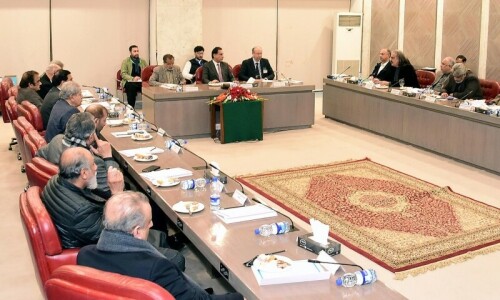Introduction: Mansoor Ijaz is a Pakistani-American, investment banker and a negotiator mostly in relation to Iraq, Pakistan and Afghanistan. Ijaz is the founder and chairperson of Crescent Investment Management LLC.
Biography: Ijaz was born in Florida and received his undergraduate degree from the University of Virginia. He received his master’s degree from Massachusetts Institute of Technology (MIT) in 1985, where he also trained as a neural sciences engineer.
Ijaz is known for developing CARAT, which is an equity risk management system.
Ijaz’s father, Dr Mujaddid Ahmad Ijaz was a theoretical physicist and taught at Virginia Tech.
Career History: Ijaz is an eloquent commentator and appeared on a variety of shows at NBC, BBC, Fox News and CNN. His contributions to the editorial pages of Financial Times, The Washington Post, Los Angeles Times and The New York Times have been quite informative.
Ijaz is not new to controversies, which is why in 2006, during one of his interviews to the Gulf News, he said that Iran already had a nuclear bomb and aimed to multiply it without giving any information to the world.
Ijaz has played the role of an international liaison between the Clinton administration and Sudanese government when US imposed sanctions on Sudan for letting Osama Bin Laden stay in the country. Ijaz reportedly urged the US government to engage in constructive argument with Sudan before Laden departed for Afghanistan.
Ijaz, in one of his articles, written for the LA Times, accused the Clinton administration for letting Laden slip away. According to Ijaz, Sudanese government provided Americans with ample opportunities to arrest the alleged terrorist.
Memo Scandal: The controversy started on October 10, 2011 when Ijaz revealed that a Pakistani official based in US, provided him with the memo to be delivered to Admiral Michael Mullen. The memo entailed a request by the Pakistani civil command to avert a possible military coup and help the government in taking control of the military authorities.
Ijaz accused the former Pakistan’s ambassador to the US, Husain Haqqani for drafting and handing over the memo to him, allegations which the former ambassador has denied.
Ijaz was ordered to appear before the Supreme Court of Pakistan, in order to testify in the memo scandal, on January 16, 2011. However, his legal counsel Akram Sheikh said that his client needed further time as both of them were receiving threats.
Ijaz has received the Pakistani visa and was expected to arrive on January 24 via Chaklala Airbase, however on January 23, 2012, his counsel Akram Shaikh announced that his client will not be coming to Pakistan to testify in the memogate scandal, as he has concerns regarding his security in the country. Shaikh requested the Supreme Court of Pakistan to record his testimony either from London or Zurich.














































Dear visitor, the comments section is undergoing an overhaul and will return soon.